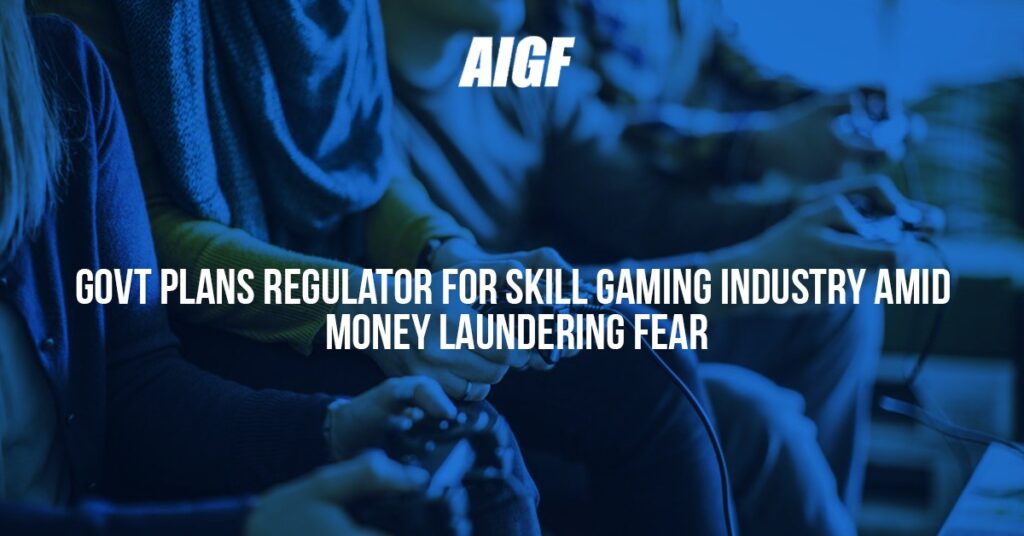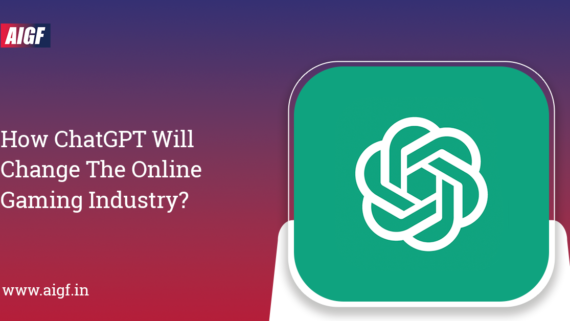Assuming platforms that work with online gaming with stakes are brought under the domain of the PMLA (Prevention of Money Laundering Act, 2002), gaming administrators would be expected to follow know your client (KYC) standards while permitting clients, including checking the clients’ identities.
Govt Plans Regulator for Skill Gaming Industry Amid Money Laundering Fear
To alleviate the stresses of tax evasion and vulnerability in the skill gaming sector, the Center is reportedly considering a proposal to create a controller to stimulate investment and protect player interests. It has been discovered that the industry is additionally for such a move.
As indicated by a new report, individuals acquainted with the matter said that while the public authority is thinking about opportunities for controlling such associations, it is of the assessment that the task ought not to be shared with any financial sector controller because the occupation may not suit its center ability.
India must be one of the world’s five best mobile gaming markets. As indicated by Statista, the market worth of the Indian skill gaming sector was around Rs 9,000 crore in FY20, and an arrival of Rs 14,300 crore in FY22 was anticipated.
As per the KPMG-FICCI 2021 report, India’s gaming market will reach Rs 143 billion ($2.03 billion) by FY22, up from Rs 62 billion in FY21. As indicated by recent reports by Sequoia India and Boston Consulting Group, the mobile gaming market in India is supposed to develop to $5 billion by 2025, up from $1.5 billion as of now.
Skill Gaming
According to the All India Gaming Federation (AIGF), which was laid out in May 2016, the online skill gaming industry is one of the fastest developing sectors in the country.
In basic terms, online skill gaming or online games of skill have a compensation-to-play format that fundamentally incorporates online fantasy sporting events, online rummy, casual games, and online poker games.
AIGF states: “All member entities participating in online games of skill, i.e., online fantasy sporting events, online rummy, casual games, and poker games, will be properly consolidated/enrolled in India or have a corporate presence in India.”
In the lawful segment, it says: “Participation in pay-to-play game configurations in India will be limited to clients in just those Indian states in which the pay-to-play formats of the games are legitimate.” Pay-to-play formats of games for members won’t be offered to or targeted at any individual under 18 years of age. ”
Legislation
In any case, it is important that, as of late, three Indian High Courts have needed to explain their choices to strike down embraced gaming guidelines in their states as unlawful.
As per the AIGF, these improvements show that the earlier difference between games of skill and games of chance remains ambiguous even to the country’s policymakers, and the reaction to whether to play a game online or any other game remains perplexing and, surprisingly, obscure.
It additionally made sense that the legality of gaming in India depends on the “Victorian-era Public Gambling Act of 1867”, which disallows wagering and public gaming houses while excluding “games of mere skill” from its jurisdiction.
That’s what the AIGF recommended: “a Gaming Authority can be made and requested to order games according to by far the most skill or chance in continuous ongoing gameplay and end ambiguity over this distinction for good.”
Also, Rajya Sabha member Sushil Kumar Modi, in an article titled “Why Online Gaming in India Needs Regulation,” said: “This authority could be made liable for the online gaming industry, really looking at its tasks, forestalling social issues, appropriately characterizing games of skill or chance, coordinating client confirmation and combatting illegality and crime.”
Despite this, as reported prior, online skill gaming, which draws in many clients and includes enormous amounts of money, is probably going to be brought under the domain of the Prevention of Money Laundering Act (PMLA) with the end goal of forestalling money laundering (ML) and terror financing (TL) through such exercises.
The Telangana government’s Principal Secretary of IT, Jayesh Rangan, has encouraged gaming organizations to carry out powerful KYC mechanisms.
Indeed, even the finance minister and the Reserve Bank of India (RBI) have communicated worries about the absence of an administrative structure for stakes-based online gaming.
Organizations that work on such exercises are formed in the country under the Companies Act or the Limited Liability Partnership Act. Foreign investment in the real money gaming sector isn’t restricted, and three organizations are right now regarded at more than $1 billion.
Assuming platforms that work with online gaming with stakes are brought under the domain of the PMLA (Prevention of Money Laundering Act, 2002), gaming administrators would be expected to follow know your client (KYC) standards while permitting clients, including checking the clients’ identities.
The requirement for such a move emerged after investigation agencies couldn’t follow explicit cash trails because online skill gaming organizations were neglecting to validate their clients by confirming the records required for a KYC check.
An investigation, for example, discovered that large sums of money, measured in lakhs, were transferred using these gaming apps with almost no KYC checks.
It was likewise revealed that assuming an exchange surpasses Rs 50,000, gaming organizations might be approached to document a suspicious transaction report.
Credit: Topologypro One











Comments
Comments are closed.